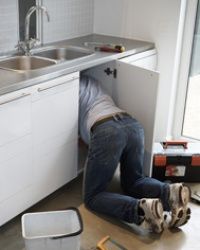Key Takeaways
- Factors that devalue a house include too many similar listings in the market, adverse neighborhood conditions like noise or light pollution, and the quality of local schools.
- Physical aspects of the property, such as poor curb appeal due to yard maintenance or unattractive paint jobs, as well as interior aesthetics like outdated kitchens and bathrooms, can also decrease a home's value.
- If major repairs are left unaddressed — such as structural issues or outdated, inefficient systems — it can significantly reduce a property's worth and appeal to potential buyers.
A lot of things factor into how much your home is worth, such as the location, the square footage, the school district and the number of bedrooms and bathrooms. Although several of those parameters aren't easily changed, some are under a homeowner's control.
As an astute homeowner, your job is to consider both what you can do to improve your home's value, as well as what you may (inadvertently or otherwise) be doing to decrease it. Completing renovations and repairs might pay off to varying extents. In other cases, you may just have to put up with some of the things you don't love about your home, but letting a house slip into disrepair is a surefire way to decrease its value. Whatever path you choose, it's crucial to be aware of how you're affecting your home's bottom line and to understand what can be done to raise it back up.
Advertisement
One of the main things to remember while trying to boost your house's value is that people have a wide variety of tastes. Those tastes may vary greatly both geographically and demographically. A house with the flexibility to suit a big slice of the population pie will be more in demand than one highly customized to any one particular lifestyle. The more people who find a house attractive when it hits the market, the better off you'll be.
On the following pages, we'll examine some of the top causes of home devaluation and see what, if anything, homeowners can do about them.






